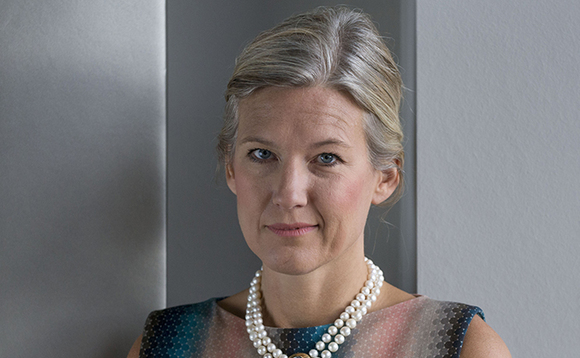
SWIP's Lehmler-Brown: Competition threatens Nordic performance

Ahead of the unquote” Nordic Private Equity Forum, keynote speaker Mirja Lehmler-Brown, principal at Scottish Widows Investment Partnership, speaks to Alice Murray about the region's hot topics and what local GPs need to do to prosper.
Nordic private equity funds have traditionally enjoyed strong LP appetite but, with rising company valuations, increased competition from pan-European and institutional investors on top of continued political headwinds, is the tide finally turning?
Alice Murray: How do you assess private equity funds seeking investment and what is your view of Nordic funds?
Mirja Lehmler-Brown: We have an in-house, 100-point scoring model to help structure the selection of managers. The process scores culture, team, sourcing, process, value creation and track record. Nordic managers have traditionally scored very well so we've historically had a leaning towards the Nordic region.
The evaluation of soft topics is as important as analysing the hard facts but harder to score. We spend a lot of time focusing on culture, asking questions such as: what are their values? What do the key people and the firm stand for? What are their ambitions, motivations and goals? How persistent are they? How are they approaching companies? Humility and a good approach in dealing with all stakeholders are also essential.
AM: What distinguishes Nordic funds from their European counterparts?
MLB: Nordic funds have had a strong platform with a stable macro climate, high-quality education and a good industrial and technological base. In comparison with the UK and France, Nordic players have managed the competition because of their location; the Nordic region houses smaller countries away from the rest of Europe, so the fly-in competition might be less forceful. The early Nordic funds integrated a strong governance model, a high bandwidth in the team and broad industrial networks that have attracted us to the region.
AM: The Nordic region has always been strong when it comes to fundraising. Do you think this will continue, or is the region losing its appeal?
MLB: The Nordic platform is still perceived as quite solid and safe due to the macro prospects and it will always have good access to capital. The negative aspect is that the region is quite pricey at the moment. The outperformance of the early funds of Nordic Capital, EQT and Segulah that stand out on a European basis is going to be hard to repeat in a more competitive environment, especially as many managers have raised substantially larger funds. Furthermore, competition is increasing at the larger end of the market; we have seen the pan-European funds and Asian sovereign wealth funds come in and win primary deals including Nets and Stokke – deals that historically would have gone to local funds.
AM: What, in your view, are the most pressing issues for Nordic private equity right now?
MLB: There is a bit of a supply/demand imbalance because activity in the M&A market has been relatively low in recent years and has not recovered to pre-recession levels. Nordic GPs therefore need to keep improving their game continuously. They need to take on-board situations quicker and focus on the right deals. There's less room for errors due to the current pricing.
With the recent political headwinds, it is also very important to work together with the SVCA to make sure that the wider community gets a deeper understanding of private equity. The industry needs to spend time with all types of stakeholders to educate and build personal relationships. The quality of certain sectors in Sweden, such as education, has decreased over the last few years and private equity has a proven value creation model that could help improve these sectors.
AM: Do you think it is possible for the industry to work alongside state bodies?
MLB: I think there needs to be more focus and discussion around the growth coming through in private equity-owned companies and the opportunities for work it creates. Many Nordic pension funds are invested in the asset class so profit is not going to private individuals' pockets but benefits the broader population in a low-growth environment. If you don't know anyone from the "other side" it's easy to make statements either way. However, if the industry has a representative face, the different sides could actually speak to each other and avoid misunderstandings.
AM: What do you think about the calls for increased transparency and the subsequent push for moving funds onshore?
MLB: The situation has improved a lot during the last few years, yet there's still a lot of work to be done. At the same time, leverage and tax structuring is obviously part of the value creation, within reason; avoiding a double layering of taxation benefits the pension investors that are active in this industry. Nevertheless, this doesn't necessarily prevent the establishment of local funds. Several of the Nordic funds are Sweden-domiciled ABs so it is possible to create structures that work for value creation in a private equity sense, but that don't feel as foreign and carrying the same negative connotations as certain tax havens. In the future I think there will be more ABs and other onshore structures in other countries such as the Netherlands.
AM: How could the public perception of private equity improve in the Nordic countries?
MLB: It's important that people are communicating the positive aspects of private equity. You can't turn everyone's view around in three months but you need to start somewhere. The way to do this is to reach out to all sorts of stakeholders with meetings and discussions on different levels; starting with a foundation and building upwards from there with as good an understanding as you possibly can offer of the private equity industry, and that will take time.
AM: What changes do you see ahead?
MLB: The industry has moved away from its attachment to the notion of historic track records during the last couple of years. Today there's a stronger focus on current funds and the bandwidth of the current team, as well as looking at future performance. We've had a few situations in the Nordic region where GPs thought they could raise a quick fund because their historic track record was strong, while it actually took time until they could show that their current fund was going to be successful and that succession issues were being dealt with in a satisfactory way. The sustainability focus has increased as well.
There are a few more funds raised currently or in the near future where some changes in senior positions could trigger political issues and further scrutiny on who will be active in what capacity for upcoming funds. Investors need to be content with the capacity of what the next top layer in the team are able to produce.
Enjoyed reading this article? Meet Mirja Lehmler-Brown at the unquote" Nordic Private Equity Forum on 13 May in Stockholm. She will be providing a keynote address on "The changing private equity investment landscape in the Nordic region". For more information on the agenda, or to register your place click here.
Latest News
Stonehage Fleming raises USD 130m for largest fund to date, eyes 2024 programme
Multi-family office has seen strong appetite, with investor base growing since 2016 to more than 90 family offices, Meiping Yap told Unquote
Permira to take Ergomed private for GBP 703m
Sponsor deploys Permira VIII to ride new wave of take-privates; Blackstone commits GBP 200m in financing for UK-based CRO
Partners Group to release IMs for Civica sale in mid-September
Sponsor acquired the public software group in July 2017 via the same-year vintage Partners Group Global Value 2017
Change of mind: Sponsors take to de-listing their own assets
EQT and Cinven seen as bellweather for funds to reassess options for listed assets trading underwater








